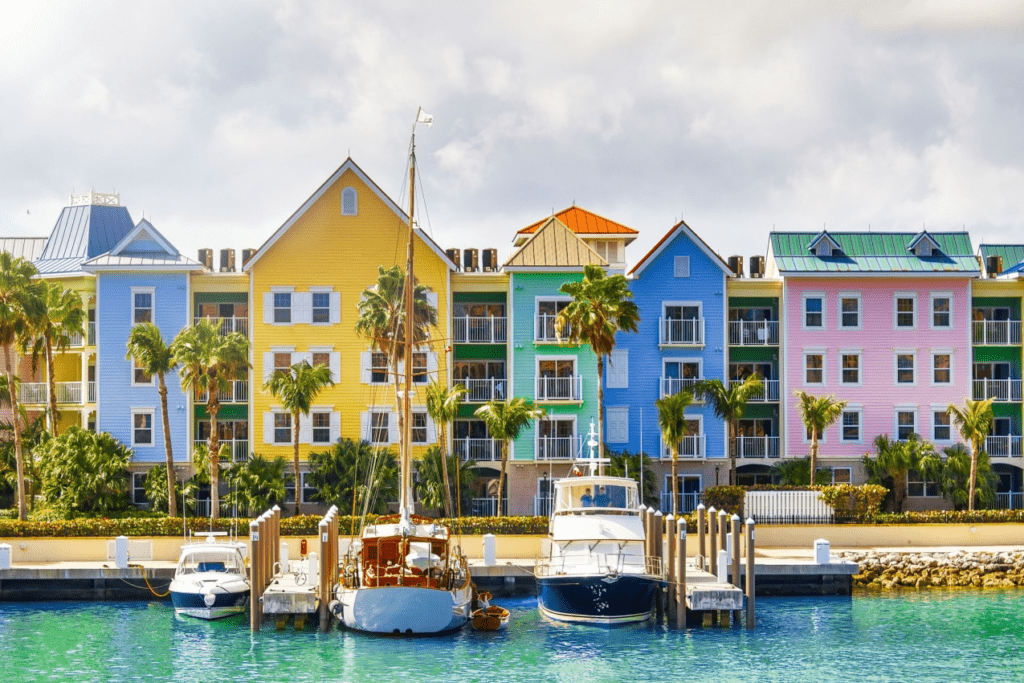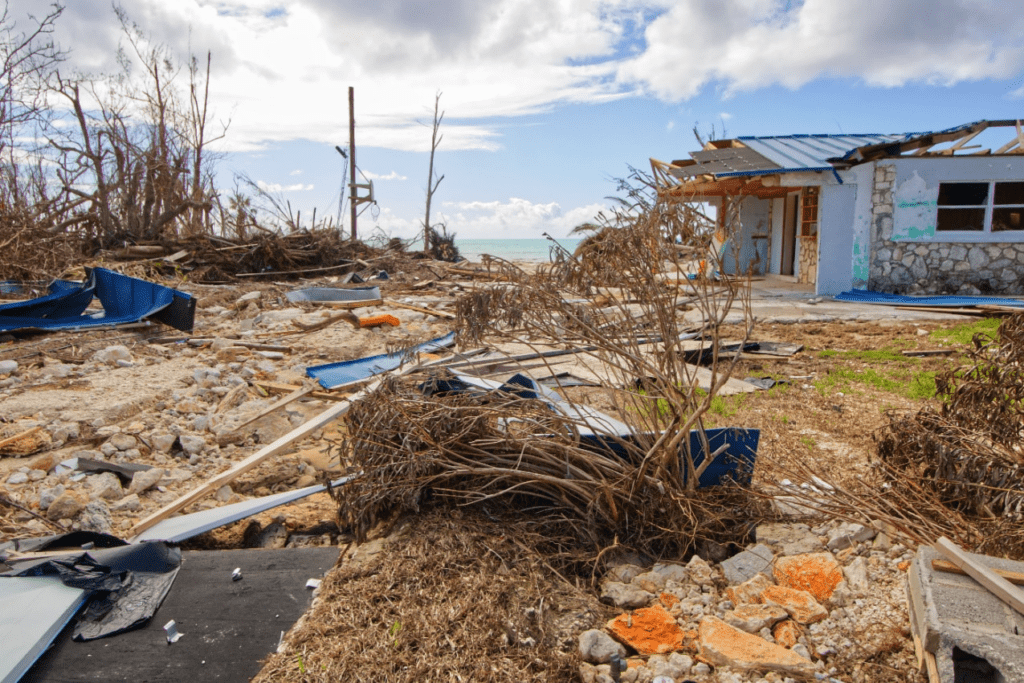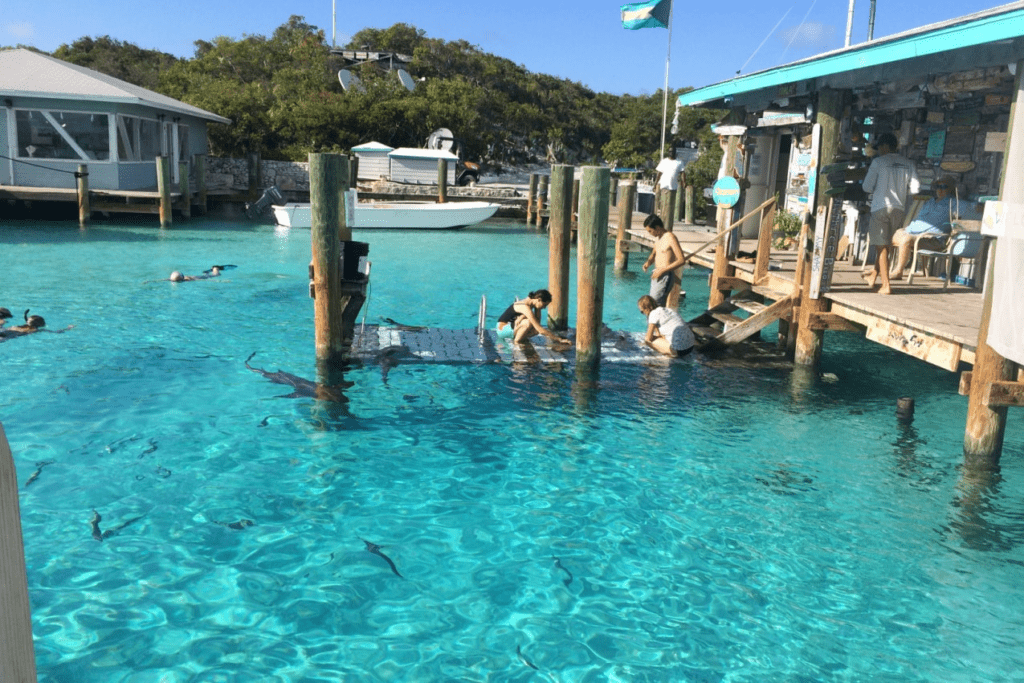7 Must-Know Facts: Is It Safe to Travel to the Bahamas?
When you think of the Bahamas, images of crystal-clear waters, white sandy beaches, and luxurious resorts probably come to mind. But with so much beauty, one question might still linger: Is it safe to travel to the Bahamas? If you’re planning a trip to this tropical paradise, you’ll want to know the facts to ensure a smooth and enjoyable vacation. Here are seven essential things you need to know about safety in the Bahamas.

1. Crime Rates: What You Should Know
Like many tourist destinations, the Bahamas does have areas where crime is more prevalent. Nassau, the capital, has seen incidents of crime, especially in less touristy areas. But don’t let this scare you off! The key is knowing where to go and staying alert. Most tourists experience the Bahamas without any issues, especially when sticking to well-known areas and resorts. Use common sense—avoid isolated places at night, and keep your valuables secure.
2. Safe Areas to Explore
The Bahamas is made up of 700 islands, but only about 30 are inhabited. Popular tourist spots like Paradise Island, Grand Bahama, and the Exumas are considered very safe for visitors. These areas are well-patrolled and cater heavily to tourists, meaning safety is a top priority. Staying within these regions will significantly reduce your chances of encountering any trouble.
3. Natural Disasters: Be Prepared
The Bahamas is in the Atlantic hurricane belt, so if you’re planning a trip during hurricane season (June to November), it’s essential to stay informed. Hurricanes can pose significant risks, but the Bahamas has a robust system in place for monitoring and alerting residents and tourists. Always check the weather forecast before your trip and consider travel insurance that covers natural disasters.

4. Health Concerns: What to Watch For
Health-wise, the Bahamas is relatively safe, but there are a few things to keep in mind. The tap water in Nassau and Freeport is generally safe to drink, but bottled water is a safer bet on smaller islands. Mosquito-borne illnesses like Zika and Dengue are rare but possible, so pack insect repellent. Also, ensure your vaccinations are up-to-date before traveling.
5. Transportation Safety
Getting around the Bahamas can be an adventure in itself. Taxis are generally safe, but make sure they’re licensed—look for the yellow license plate. If you’re renting a car, remember that Bahamians drive on the left side of the road, which can take some getting used to. Road conditions can vary, especially on less developed islands, so drive cautiously.
6. Water Activities: Stay Cautious
The Bahamas is a dream for water lovers, offering everything from snorkeling to deep-sea diving. While the waters are generally safe, it’s crucial to follow all safety guidelines. Pay attention to local advisories about strong currents or jellyfish, and never swim alone, especially in secluded areas. If you’re planning on renting a boat or jet ski, ensure the equipment is from a reputable source.
7. Cultural Sensitivity: Respecting Local Customs
Bahamians are known for their hospitality, but it’s always a good idea to be respectful of local customs. The Bahamas is a predominantly Christian nation, and locals tend to dress conservatively, especially outside of tourist areas. While swimsuits are fine at the beach, it’s respectful to cover up when in town. Also, tipping is customary in the Bahamas, so be prepared to tip for good service in restaurants, hotels, and for tour guides.

Final Thoughts: Should You Visit the Bahamas?
Absolutely! The Bahamas remains a top destination for travelers worldwide. By staying informed and taking a few basic precautions, you can enjoy everything this stunning archipelago has to offer. Whether you’re lounging on the beach, exploring underwater caves, or enjoying the vibrant culture, the Bahamas is a safe and fantastic place to make memories.
So pack your bags, grab your sunscreen, and get ready for an unforgettable trip to the Bahamas!
8. Travel Insurance: Don’t Skip It
One of the most overlooked aspects of travel safety is having the right insurance. While you might not expect anything to go wrong on your dream vacation, unexpected events like flight cancellations, medical emergencies, or lost luggage can happen. Travel insurance can provide peace of mind and cover the costs of these unforeseen issues. Make sure your policy includes coverage for medical emergencies, especially if you plan on engaging in activities like diving or boating.
9. Emergency Contacts: Know Who to Call
Before you go, familiarize yourself with local emergency numbers and the location of the nearest embassy or consulate. The emergency number in the Bahamas is 911, just like in the United States. Keep a list of important contacts, including your hotel’s front desk and your country’s embassy, in case you need assistance during your stay. It’s also wise to let someone back home know your travel itinerary and check in regularly.

10. Local Laws: Stay Informed
Understanding and respecting local laws can help you avoid unnecessary trouble. The Bahamas has strict laws regarding drug use, and penalties for possession can be severe. Additionally, public nudity is illegal, so it’s important to dress appropriately, even on the beaches. Alcohol consumption is legal at 18, but drink responsibly, especially if you’re planning to participate in activities like boating or swimming afterward.
11. Cultural Etiquette: Embrace the Bahamian Way
While safety is crucial, so is making the most of your cultural experience. Bahamians are generally warm and friendly, and showing respect for their customs will only enhance your trip. Engage with locals, try the cuisine, and participate in local events if possible. The Bahamas is known for its Junkanoo Festival, a vibrant celebration with music, dance, and elaborate costumes, which is a must-see if you’re visiting during the season.
12. Digital Safety: Stay Connected Securely
In today’s world, digital safety is as important as physical safety. Ensure your devices are secure by using strong passwords and enabling two-factor authentication. When accessing public Wi-Fi, avoid logging into sensitive accounts or making online transactions. Consider using a VPN (Virtual Private Network) to protect your data while on the go. Also, keep a backup of important documents, like your passport and travel insurance, in a secure cloud service.
13. Packing Essentials: Don’t Forget These
Packing smart can make a big difference in your travel experience. Beyond the basics like clothing and toiletries, consider packing a first-aid kit with essentials like band-aids, antiseptic wipes, and any medications you might need. A portable charger for your devices, sunscreen, and insect repellent are also must-haves for the Bahamas. If you plan on exploring remote areas, bring a reusable water bottle and some snacks to keep you hydrated and energized.

14. Sustainable Travel: Protecting Paradise
The Bahamas is not just a beautiful destination; it’s also a fragile ecosystem. Help preserve its natural beauty by practicing sustainable travel. Avoid single-use plastics, support local businesses, and respect wildlife. If you’re snorkeling or diving, be mindful of the coral reefs—avoid touching or standing on them, as they are easily damaged. Your actions can help ensure that future generations can enjoy the Bahamas just as you do.
Wrapping Up: Your Safety is in Your Hands
Traveling to the Bahamas can be a safe and enriching experience, as long as you take the necessary precautions. By staying informed, respecting local customs, and being prepared for any situation, you’ll be able to fully enjoy all that this tropical paradise has to offer.
Remember, the goal is to create unforgettable memories, not just for yourself but for those who may travel after you. Safe travels, and enjoy your time in the Bahamas!
As you plan your trip to the Bahamas, you might have some additional questions. Here are a few frequently asked questions that can help ease any lingering concerns.
Is the Bahamas Safe for Solo Travelers?
Absolutely! The Bahamas is generally safe for solo travelers, especially in well-trodden tourist areas like Nassau, Paradise Island, and the Exumas. Solo travelers should take the usual precautions—avoid walking alone at night, keep your belongings secure, and be mindful of your surroundings. Staying in reputable accommodations and booking tours through trusted providers can also enhance your safety.

What Should I Do in Case of an Emergency?
In the unlikely event of an emergency, dial 911 for immediate assistance. If you lose your passport or need consular services, contact your country’s embassy or consulate in the Bahamas. Most hotels and resorts have staff trained to assist in emergencies, so don’t hesitate to reach out to them for help.
Is the Tap Water Safe to Drink in the Bahamas?
In major tourist areas like Nassau and Freeport, tap water is generally safe to drink. However, bottled water is recommended, especially if you’re on smaller islands or if you have a sensitive stomach. Staying hydrated is essential, especially in the tropical heat, so always have a water bottle handy.
What Are the Health Risks in the Bahamas?
Health risks in the Bahamas are relatively low. However, mosquito-borne illnesses like Zika and Dengue can occasionally occur. Protect yourself by using insect repellent, wearing long sleeves and pants in the evening, and staying in accommodations with screens or air conditioning. Ensure your vaccinations are up-to-date, and consider packing a small first-aid kit for any minor injuries or ailments.
Do I Need a Visa to Visit the Bahamas?
Visa requirements for the Bahamas depend on your nationality. U.S. and Canadian citizens can enter the Bahamas without a visa for stays of up to 90 days. Citizens of other countries should check with the Bahamian embassy or consulate to determine if a visa is required. Make sure your passport is valid for at least six months beyond your planned departure date.
Is It Safe to Use ATMs in the Bahamas?
ATMs are widely available in the Bahamas, especially in tourist areas. To stay safe, use ATMs located in well-lit, busy areas, preferably inside banks or large hotels. Be cautious of your surroundings and avoid withdrawing large amounts of cash at once. It’s also a good idea to inform your bank of your travel plans to avoid any issues with card usage.
Final Thoughts: Enjoying a Worry-Free Vacation
Traveling to the Bahamas is a dream come true for many, and with the right preparation, your trip can be as safe as it is enjoyable. By following these tips, you’ll not only stay safe but also fully immerse yourself in the beauty and culture of the islands.
Whether you’re lounging on a pristine beach, exploring the vibrant underwater world, or savoring the local cuisine, the Bahamas offers something for every traveler. With a little planning and awareness, you can focus on what really matters—making unforgettable memories.
Safe travels, and may your time in the Bahamas be everything you’ve dreamed of and more!

